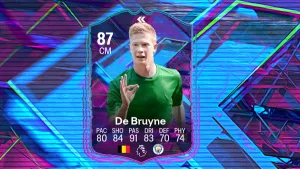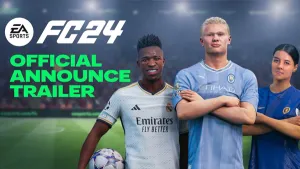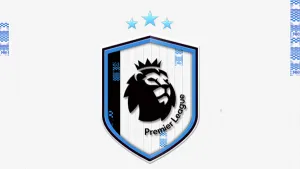NBA 2K12 Developer Insight 12 - Presentation
POSTED September 28, 2011
A couple members of the NBA 2K12 presentation team –Jonathan Corl and Dion Peete- participated in the creation of the Developer Insight on Presentation. Check out this new Developer Insight.
STAYING UP-TO-DATE
The one aspect about the life of NBA players is that they are always evolving. Through Living Rosters, we will continue to modify a player's on-court abilities as we have the past few years; but, for the first time, we can modify art without submitting a full patch update. That means, this year from the 2K Sports servers, we will modify players in many different ways including updating shoes, uniforms and some hair and tattoos. It will also allow us to make changes to the court to bring the most realistic and up-to-date graphical content of any basketball game ever. It’s a major development and one that I think many of you will enjoy.
GREATEST PLAYER
TV – A History Lesson
To understand our methodology for the NBA’s Greatest Mode presentation, you need to understand certain aspects of broadcast television that exist today, 10 years ago and 35 years ago. The leaps made in broadcast television quality from 1965 to the early 70s (let alone the 1980s) are tremendous. As the wide world of sports grew, so did the tools, tricks and tech.
Click here for high resolution
Way back in the 1960s, live broadcast TV was the only way to catch your favorite team in action. No Youtube, no NBA.com, no Sportscenter….nothing. Cable TV was still 20 years away. Cameras were large and clunky and there weren’t many of them. Black and white was more common and their version of HD was simply the addition of color. Even the ability for a large cumbersome camera to zoom smoothly was hard to come by. The net result of that reality means black and white, fewer camera angles, no dramatic zooms, and a much lower frequency of camera cuts to another angle. As the game progresses into the 70s, we captured what had changed in the world of TV and production. This is reflected in a slightly augmented presentation relative to the 60s with the onset of color, more frequent camera cuts, and shots of players that are tighter than the regular full head-to-toe framing.
Click here for high resolution
The broadcast TV compound was also missing something else in the 60s and 70s aside from the 20 camera angles, digital instant replay devices and numerous microphones to capture the swish and sneaker squeaks. That would be the almighty computer. A certain 10-year old named William Henry Gates was still learning his multiplication tables when Russell was cleaning the glass and collecting rings. Thus, stat gathering and graphics were produced by way of a pencil– no real time automated stat gathering here. The on-screen stat overlays were produced with camera filter tricks. These production constraints severely limited what a broadcast had at their disposal to breakdown the game statistically. This is reflected within our early games by the absence of ‘art’: nothing but letters and numbers and showing only the basics when it comes to stats. No season offensive rebound stats or steals in these games. And player shot charts? Not a chance.
Overlays for Greatest Players
Click here for high resolution
Another area we really wanted to enhance, especially for our younger gamers, was the overlays (or in TV lingo ‘lower thirds’ or ‘graphics’) that told the stories about the NBA Greats and their teammates. This is done through both overlays and audio commentary, something Joel Simmons referenced in his Developer Insight last week. As it pertains to overlays, we dug through the history books to reference some of the great stories the NBA has ever heard or seen. You will find these stories and notes peppered throughout the ‘Greatest’ games. Sure, we know that Wilt scored 100 points, but did you know how many points came from the free throw line? Speaking of the all-important free throw, what about the night Jordan went 21/24 from the free throw line, alone? We all know that Bill Russell won numerous championships and made it into the Hall of Fame, but how many of his teammates joined him in Springfield? It’s all there and so much more. Keep an eye and ear out as you play, you will be amazed at some of the mind-boggling accomplishments and feats that were achieved way before cable TV and Michael Jordan took flight.
Click here for high resolution
With an understanding of all the history on and off the court, we hope that playing Greatest Players feels more like a journey back in time, minus the flux-capacitor, and that your experience with these great players looks and feels the way your father or grandfather would have enjoyed them years ago. And for our younger gamers, a little history lesson about some of the great players that walked the hardwood when the NBA was in its golden years and nicknames like ‘The Stilt’ ruled the lane.
CORE DEVELOPMENTS
Stats and Overlays
Another leap we made this year in presentation pertains to stats and overlays throughout the game. What was important to us this season can be broken down into three priorities:
First: stat type, variety and depth
Second: To inform or educate you more about the teams or players involved
Third, and finally, we wanted to help you more your current game through current game stats, while it was taking place
In the modern age of sports, stats aren’t king, but they certainly are part of the king’s court. This season in 2K12, you will see more stat types with different splits and comparisons: the most important of these being comparisons. Sure, the Bulls had 42 Rebounds last night versus their opponent, but how does that stack up against their season average or the rest of the league? Any dolt can throw up a stat but a story teller will give that stat an angle or point. We not only want to convey the data, but to give the data meaning. That’s what makes a stat, or stats, interesting.
Another advancement this season was finding the key stats within the game more effectively. By producing the appropriate stat(s), we not only inform the gamer but also give indication to where his game is lacking or thriving. One of the many new examples within 2K12 is ‘Player vs. Rest of Team’ stat analysis. When a player would dominate in the past, all that was shown was his full stat line. Now you also might see a comparison between the star player and the rest of his team. In addition to stat variety, these types of stats & overlays can more effectively tell the story that is unraveling within the game. Again, this is not a case of arbitrarily showing some random stats, but showing stats that have relevance to the game and, most importantly, the gamer.
Cameras
To continue to advance our camera system, which is built on the foundation of authentic broadcast TV configurations, we dug deeper into the creative core of the broadcast TV Director. To do this, you need to understand the mindset of a former a broadcast TV Director. The reasons why Directors don’t have certain looks or effects at their disposal runs a large gamut, from budgets to physical stadium configurations and technical limitations. Fortunately, we at 2K are not subject to those pressures.
With the overhauls we made in 2K11 to our camera system, we wanted to continue pushing for greater variety and authenticity. The one thing that I wanted to avoid was our game becoming ‘robotic’, meaning that after a gamer had played the game numerous times he/she knew when and where the camera would cut to next. Repetitiveness is something many great TV Directors try to avoid and our TV counterparts, we are always looking to enhance the viewer’s overall experience.
To advance the system, we took a look at our camera set and the entire pan, tilt and zoom options each of those cameras possessed. The first natural step was to add camera positions. These are camera positions that TV Directors have in their arsenal at a few stadiums; not all due to physical limitations of the stadiums or the simple fact that type of camera was not part of package for the broadcast. Fortunately in 2K12 we don’t have to worry about physical stadium constraints or camera availability. Thus we have all the cameras from all the great angles. A TV Director’s dream.
The next step was to add more variation to pan, tilts and zooms. To mimic our television counterparts we needed the variation seen on a nightly basis during a NBA broadcast. Now we have huge palette camera motions to choose from to make each game unique. Certainly pan, tilt and zoom speed sounds like a dull nuance to the game, but, after someone plays the game numerous times, that lack of variety and predictability begins to detract from the experience. This subtlety is an aspect, combined with others, that makes the new game a fresh experience every time you hit the start button.
Now I want to pass it to Dion Peete who is going to delve deeper into cameras and further explain some of the other awesome additions to 2K12’s presentation.
Broadcast Stadium
Hey all, Dion here. Well you have to start somewhere, so the first thing we knew we wanted to do was to give you a feel like you’re actually at a different arena for each game. In real life, every arena isn’t structured the same and we mirror that (from an art perspective) in the NBA 2K series. However, what we never did, until this year, was take into account the fact that the cameras are going to be positioned in slightly different positions. TV broadcasts don’t magically have the camera in the same spot from one arena to the next, so I figured we shouldn’t either.
So I said to myself, “Self, let’s go watch a whole bunch of games and let’s make 30 new cameras.”
In previous versions of NBA 2K, we gave you one “Broadcast” angle for all of the arenas and it did the job. Now, as you bounce around from arena to arena, you can notice variety in the new default gameplay camera (Broadcast Stadium).
Playing in Atlanta feels and looks different from playing in Phoenix.
Click here for high resolution
Click here for high resolution
Playing in Golden State feels and looks different from playing in Minnesota.
Click here for high resolution
Click here for high resolution
Broadcast Stadium will be the default camera angle, but just in case you were attached to the Broadcast angle from 2K11, don’t worry it’s still there in the options for you.
Beluba CAM
Those of you familiar with the NBA 2K online community, know who “Beluba” is. For those that don’t, “Beluba” is (Senior Gameplay Designer) Mike Wang’s screen name to the online community (and you can read his fantastic Insight on Controls here)…
“Beluba?”
Don’t ask. I have no idea what it means either and I’ve worked with the guy for 5+ years. But we talkin’ ‘bout cameras right now… Not a screen name. Not a screen name … CAMERAS!
So Mike came to me early in the production cycle asking to have a camera that got in really tight on the action, in order to show off the animations but one which could also zoom out at the appropriate times. We ping ponged some ideas back and forth and created the Beluba CAM.
Mike on what makes Beluba CAM cool:
Sometimes you need to get a little closer to appreciate the details we pour into the game every year. The Art team [spends a lot of time making sure that every player has authentic tats, shoes, accessories, etc. which you can only really see during replays and timeouts when you’re using the regular Broadcast angles. The Beluba cam virtually puts you in the lower bowl, just past courtside, so you can see all the art and animation nuances during actual gameplay. As you’re bringing the ball up in transition, the camera zooms out to help you survey the court and set up the play. But when you get into the front court, the camera zooms in nice and tight. It actually helps me see the small seams in the defense when I’m breaking guys down in a 1-on-1 situation and makes me feel like I’m in the heart of the action.
Beluba Cam 1
Click here for high resolution
Beluba Cam 2
Click here for high resolution
It’s all he plays in now despite all the work that went in to the aforementioned Broadcast Stadium cameras. I’m not bitter though…
Hot Zones
Knowledge is power…
Click here for high resolution
As you can see from the above pic, we can now display the HotZone data for all players in NBA 2K12. Yes, including Legends. What are HotZones? Without drawing more charts and graphs or babbling on about shooting %s, basically HotZones are there to help you understand where a player is likely to be successful or unsuccessful from when shooting the ball. Understanding these zones will be vital to your offensive attack. On the flip side, understanding these zones will be vital to your DEFENSIVE gameplan. Of course you’re not going to memorize ALL of the zones for EVERY player, but understanding the key zones for the key players can go a long way on both sides of the ball.
When you go into Practice Mode à Freestyle, Post, or Scrimmage, we allow you to pull up the HotZone chart of the player currently in possession of the basketball. If you have force feedback on, when you move the player into the Red areas, your controller will rumble. For those that have noticed this rumble in past versions of NBA 2K, it was telling you that you were in a player’s Red Zone. The HotZones were always there, and now you can see them in practice mode.
How the Zones break down:
Red means that the player is above average when shooting from that zone
Gray means that the player is average when shooting from that zone
Bluew means that the player is below average when shooting from that zone
Move into any area other than Red and the rumble will stop. The rumble will carry over to regular gameplay to remind you that you’re in the player’s Red zone. The chart, however, does not carry over into gameplay.
A few HotZone tips
Tip #1: Play around with the different types of perimeter shots in the game (step backs, spin jumpers, flick flicks, drifters, etc…). You will find that you can begin the shot outside of a player’s HotZone, but sometimes the gather for the shot may land you IN the player’s HotZone, which is where you want to be when you release your shot.
Tip #2: Similar to Tip #1 – When on offense and in the post, use lateral movement to move your player into his HotZone if you’re not there already.
Teaser
Every year we try to come up with a new way to get you pumped up leading into each game you’re about to play. This year we’re giving you a cool music video style “Teaser” before the game.
We choose a song from the soundtrack and run clips of players from the teams that are about to play. The clips are timed on beat to the music. The clips can be anything from (a range of) emotions to action to signature moments to the Mascot acting goofy or pumping up the crowd. The songs from the soundtrack are pretty high energy which helps set the table for an epic match up. Cool uses of on screen graphics and filters also help with the music video-ish vibe we were going for. It’s a great way to start the game off.
For the sake of variety, you don’t get the Teaser before every game. Our users play the game A LOT so we made sure to have a few different ways to kick off the in game presentation so things don’t get stale. I am sure you have experienced this some with the demos or the various gameplay videos that have been posted.














